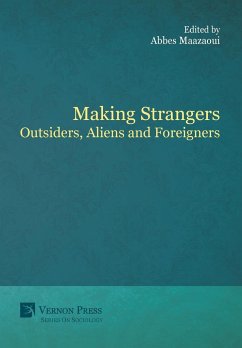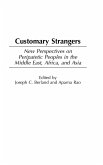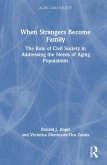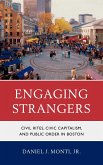Studies on foreignness have increased substantially over the last two decades in response to what has been dubbed the migration/refugee crisis. Yet, they have focused on specific areas such as regions, periods, ethnic groups, and authors. Predicated on the belief that this so-called "twenty-first century problem" is in fact as old as humanity itself, this book analyzes cases based on both long-term historical perspectives and current occurrences from around the world. Bringing together an international group of scholars from Australia, Asia, Europe, and North America, it examines a variety of examples and strategies, mostly from world literatures, ranging from Spain's failed experience with consolidation as a nation-state-type entity during the Golden Age of Castile, to Shakespeare's rhetorical subversion of the language of fear and hate, to Mario Rigoni Stern's random status at the unpredictable Italian-Austrian borders, to Lawrence Durrell's ambivalent approach to noticing the physically visible other, to the French government's ongoing criminalization of hospitality, to Sandra Cisneros's attempt at straddling two countries and cultures while belonging to neither one, to the illusive legal limbo of the DREAMers in the United States. We are not born foreigners; we are made. The purpose of the book is to assert, as denoted by the title, this fundamental premise, that is, the making of strangers is the result of a deliberate and purposeful act that has social, political, and linguistic implications. The ultimate expression of this phenomenon is the compulsive labeling of people along artificial categories such as race, gender, religion, birthplace, or nationality. A corollary purpose of the book is to help shed light worldwide on one of the most pressing issues facing the world today: the place of "the other" amid fear-mongering and unabashedly contemptuous acts and rhetoric toward immigrants, refugees and all those excluded within because of race, gender, national origin, religion and ethnicity. As illustrated by the examples examined in this book, humans have certainly evolved in many areas; dealing with the "other" might not have been one of those. It is hoped that the book encourages reflection on how the arts, and especially world literatures, can help us navigate and think through the ever-present crisis: the place of the "stranger" among us.
Bitte wählen Sie Ihr Anliegen aus.
Rechnungen
Retourenschein anfordern
Bestellstatus
Storno








